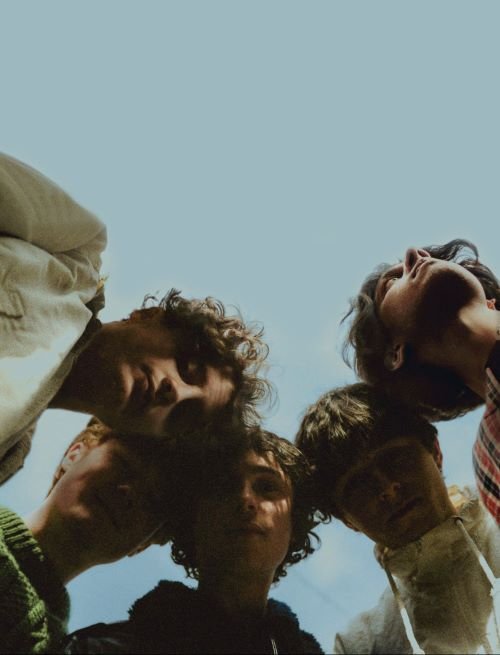A very bright future.
___________
Hi guys. How are you? How has your week shaped up?
James: We are busy busy busy. Dressed up for a Hallowe’en party on Friday night, spent all day Saturday feeling sorry for ourselves, and then watched the Manchester derby on Sunday at the pub in Hebden. It hasn’t stopped raining for a few days now, so just trying to get things in order while we have the time, keeping warm and staying dry.
You are releasing the new single, It’s Never Been Better, on 27th November. Can you tell us a little something about how the writing of that song?
The song was written many years ago as a demo on GarageBand and is the oldest track on the album and, therefore, weirdly feels right as the single we release before the album. All of the boys loved it from the first listen - and that was the general consensus from the others who also heard it. I guess the track is about how all good things come and go: friends, relationships, the weather…
“There wasn’t a moment wasted, and yet we somehow managed to get everything done”
It precedes your self-titled debut album on 1st December. How excited are you knowing it will soon be in the world? Are there any clues/teasers you can give as to the type of sounds/subjects documented on the album?
We’ve been in a band for a long, long time now, so to be able to have something physical to release to the world and show for it means a huge amount to us all. It’s hard to speak about the specific themes on the album, but I guess it’s largely about growing up, messing around, making some mistakes along the way, and doing your best to make stuff happen.
A lot of bands and artists take a while to record an album and can get into difficulties. What was it like being in the studio recording THE GOA EXPRESS?
We did the album and a few extra bonus songs in three weeks. Being in the studio with The Goa Express is good fun, we think…you would have to ask Damon and Tom. We tend to do most things together and make sure to not run out of things to do. There wasn’t a moment wasted, and yet we somehow managed to get everything done.
“People have been asking for that song for years now”
I understand you worked with producers Damon Minchella and Tom Manning. What was that experience like?
Working with Damon and Tom was incredible. We have a huge amount of respect for the both of them and we can’t speak any more highly. Initially, we recorded a load of demos at our old studio in Manchester, and therefore knew what we wanted to achieve when we got to the studio. So when we got there, we knew what to do.
Do you have any personal favourite songs from the upcoming album?
It’s hard to say. All of the songs came naturally while writing, and therefore tell personal stories from different parts of our lives over the years. Small Talk has always been a fan favourite, so I guess we are pretty happy that people will be finally able to listen to it properly. People have been asking for that song for years now.
You grew up in Burnley. How important was the community and the spirit of Burnley important regarding your friendship and sound? Do you think that part of the North is still under-exposed and recognised?
I think the North is under-exposed. Of course, there are the big cities that we all know about like, but the smaller places around the edges seem to go unnoticed. Burnley gave us a work-hard-play-hard spirit that has kept us moving throughout the years. We try not to let things get us down and know good things come to those who wait.
“We might even win some awards along the way…”
You must be excited to be touring and performing after the lockdown! Did anything change in regards your dynamic and songwriting approach having gone through lockdown and the pandemic?
Lockdown was a strange time for everyone, but we just kept ticking along, doing our own thing, making our own plans. A lot of our plans and touring schedule got really messed up, but we didn’t let it bother us too much. I guess that’s the way we tend to operate. Just getting on with stuff. Things will work out in the end.
In addition to the album release, what else is in store for the remainder of 2023?
I think the plan for the rest of the year is to release another single some time down along the line and then play some shows for our release. Hopefully, we will be amongst many of the festival line-ups and we can have a good time doing what we do best. We might even win some awards along the way…
____________
Follow THE GOA EXPRESS



































































